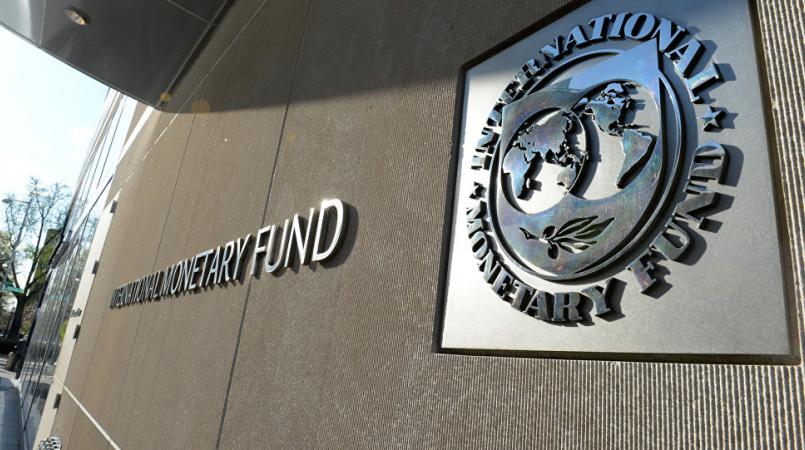- The International Monetary Fund staff and the Surinamese authorities reached a staff-level agreement on the seventh review of the authorities’ economic recovery program supported by the Extended Fund Facility (EFF). The review is subject to approval by the IMF’s Executive Board. Subject to approval by the IMF Executive Board, Suriname would have access to about USD 62.5 million (SDR 46.7 million).
- Program performance is broadly satisfactory. The authorities’ efforts to stabilize the economy are yielding positive results: the economy is growing, inflation is on a steady downward trend, international bond spreads are at record lows, and investor confidence is returning.
- The authorities’ main near-term policy priority is to maintain fiscal discipline, particularly in the run up to the elections while protecting the poor and vulnerable. Persevering with structural reforms to strengthen institutions and improve governance is also critical.
An International Monetary Fund (IMF) team led by Ms. Anastasia Guscina conducted a mission with the Surinamese authorities during July 29-August 8 to discuss policies to complete the seventh review of the 36-month Extended Fund Facility approved by the IMF Executive Board on December 22, 2021.
At the conclusion of the mission, Ms. Guscina issued the following statement:
“The IMF team reached a staff-level agreement with the authorities on the seventh review of Suriname’s economic reform program that is supported by the EFF arrangement. All quantitative targets for the seventh review were met except the primary balance target. The authorities are taking corrective actions to meet the end-year primary balance target. Structural reforms are progressing with a stronger impetus. This staff-level agreement is subject to approval by the IMF’s Executive Board, contingent on the fulfillment of all relevant Fund policies. Upon completion of this review, Suriname will have access to SDR 46.7 million (about USD 62.5 million), bringing total program disbursements to date to SDR 337.1 million (about USD 451.2 million).
“The authorities’ commitment to maintain prudent macroeconomic policies and difficult reforms are showing results in terms of macroeconomic stability and investor confidence. Economic growth is projected to reach 3 percent year, inflation is on a steady downward trend, donor support is increasing, investor confidence is returning, and international reserves are increasing. The authorities face important near-term risks, including capacity constraints and policy implementation challenges reflecting the increasingly difficult socio-political environment. Over the medium to long term, there is potential for growth to accelerate owing to the development of large new oil fields. The final investment decision is expected by the end of the year with production scheduled to begin in 2028.
“The authorities remain committed to achieving the 2024 fiscal target. Fiscal performance in the first half of the year was weak reflecting underperformance of non-tax revenues and overspending on electricity subsidies due to the low water level of the hydro dam and the electricity company not remitting to the budget resources from the recent tariff increases. To correct the fiscal underperformance, the electricity company will return the resources from the tariff increases to the state budget and will now remit directly to the state budget each month resources arising from the increases in electricity tariffs to help finance the social program. The authorities are also implementing more stringent measures to strengthen revenue collection, including through improved compliance by imposing penalties and interest for late filing and payment of taxes. It is important to speedily remove unregistered civil servants from the public payroll to create fiscal space for salary increases for those civil servants who are working hard.
“Protecting the poor and vulnerable remains a priority. The government met the indicative target on social spending for both end-March and end-June 2024. Stronger efforts are needed to address the challenges in the execution of the social beneficiary program to ensure the benefits reach the intended beneficiaries, including in the country’s interior regions. The recently completed strategic plan to enhance the effectiveness of social protection with the support of development partners is expected to guide further reforms in this area.
“Excellent progress has been made with debt restructuring. Negotiations with the Paris Club (PC) for the second phase of debt treatment are scheduled for end-September and discussions with the remaining small group of private external creditors are ongoing. Suriname’s spreads have fallen to historical lows marking significant uptick in investor confidence. Domestic debts to the central bank and commercial banks have been restructured and all outstanding domestic debt arrears except disputed ones have been cleared. The authorities are strengthening commitment controls to prevent accumulation of supplier arrears.
“The implementation of a restrictive monetary policy stance has been instrumental in reducing inflation. However, the limited activity in the interbank market is leading some banks to maintain large precautionary buffers which hampers the transmission of monetary policy to short term interest rates. It is important for the central bank of Suriname (CBvS) to continue monitoring monetary developments and to continue diligently implementing open market operations to maintain the reserve money path consistent with the program targets. The CBvS remains committed to a flexible, market-determined exchange rate and is working to improve the functioning of the foreign exchange market, including through the launching of an electronic foreign exchange trading platform.
“Vulnerabilities in the banking system are being addressed by the central bank. Timely completion of recapitalization plans of banks with capital shortages and prudent monitoring of capital adequacy, liquidity and asset quality of banks are essential to preserve stability in the banking sector. The CBvS also needs to increase its monitoring of non-bank financial institutions, particularly with respect to their interconnectedness with the banking system.
“The authorities need to persevere with their ambitious structural reform agenda to strengthen institutions and governance. The authorities have constituted the executive council and the executive board of the CBvS to help strengthen its governance. The CBvS is continuing to make progress in clearing the backlog of financial statements and regularizing the audit cycle. The Ministry of Finance and Planning and the CBvS are close to finalizing a plan to recapitalize the central bank. It is also important to push ahead with the broader governance reforms in anti- money laundering/combating the financing of terrorism (AML/CFT), anti-corruption, and public sector procurement.
“The mission would like to thank the authorities for a collaborative and fruitful dialogue. A wide-ranging set of meetings was held with the President and Vice President of the Republic of Suriname, the Minister of Finance and Planning, the Minister of Justice and Police, the Minister of Internal Affairs, the Minister of Natural Resources, the Central Bank Governor, the leadership of the National Assembly, other senior government officials, representatives of the private sector, and development partners.”








